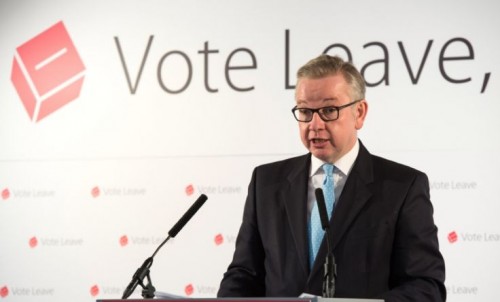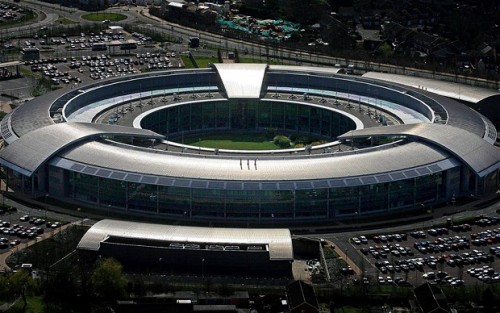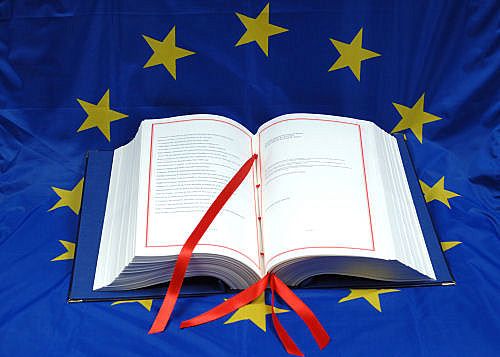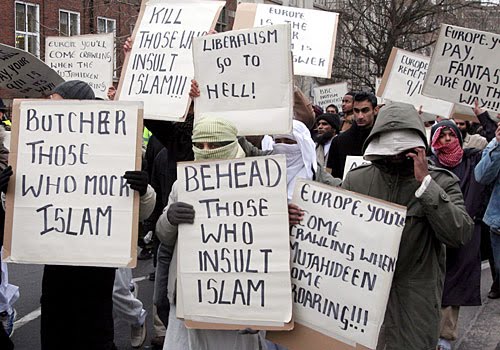When we Vote Leave on 23 June, negotiations on the UK’s withdrawal from the European Union will begin. There will be informal negotiations, formal negotiations, and legal changes. This will result in at least 1) the repeal of the European Communities Act 1972, and 2) a new UK-EU treaty. This process will take time. The details and the timing will only be clear when the new Government negotiating team engages. The full repeal of the ECA will ideally happen after a friendly negotiation and as part of the overall agreement and will therefore not be done immediately.
There are things, however, that can and should be done very quickly after 23 June to protect national security and save money. We can amend the ECA:
-
To exempt the intelligence agencies from EU law, immediately improving national security. For example, the European Court’s upcoming ruling on the UK’s surveillance regime, held back until after the referendum, will have no impact on the security services’ powers to protect us.
-
To end the application of the Charter of Fundamental Rights to the UK. We were originally promised it would have no legal effect in Britain then the ECJ made clear it does have effect. David Cameron promised a ‘complete opt out’ from the Charter. This never happened and the problem of the Charter is un-addressed in the Government’s recent deal.
-
To allow the deportation of EU citizens whose presence is not conducive to the public good, enabling us to remove violent criminals, rapists and terrorist sympathisers, such as convicted murderers or Abu Hamza’s daughter-in-law, regardless of what the European Court says.
-
To exempt the Armed Forces from the scope of EU law, preventing the risk of the European Court using the Charter to take control of the military.
-
To end multi-billion tax refunds to big business under EU law, protecting our public services by saving between £7.2 billion and £42.9 billion (£270 and £1,589 per household respectively) by 2020-21.
Michael Gove MP has given a comprehensive judicial and security related plan on Brexit:
“The European Court has consistently come down in favour of big businesses not the British people – costing us billions. Very soon after a leave vote we will be able to legislate to ensure that EU judges are not able to meddle in our tax affairs again which will save British taxpayers from tens of billions of pounds worth of liabilities.
“I think we would all prefer it if that money is spent on schools and hospitals rather than filling the coffers of multinational corporations.
“It is dangerous for the European Courts to have a say over our intelligence services and to rule on what data we can share with our allies like the US and Australia. Our intelligence network with the Five Eyes is the cornerstone of our fight against the global terror threat.
“The EU is jealous of this arrangement and many would like EU structures to replace our international networks. The Home Secretary is currently trying to stop EU judges from meddling in these networks but the court case will not be decided until after the referendum. That is something that people need to be aware of before they vote.
“If you vote remain, the EU courts will interfere more with our intelligence agencies, preventing them from fighting effectively against ISIS – this makes us less safe.
“If we Vote Leave, we take back control and stop EU judges from meddling in our affairs. I agreed with the Prime Minister when he set out his vision for getting a permanent opt out from the Charter of Fundamental Rights. Sadly, the deal did not touch this area and the Charter is being used more and more by EU judges to interfere with how we keep people in the UK safe.
“EU judges are stopping us from deporting dangerous criminals and terrorist suspects. This makes us less safe – that’s why we should take back control.”
A vote to remain in the EU is a vote for the permanent supremacy of EU law and of the European Court. If we Vote Leave on 23 June, by contrast, we take back control.
The referendum will be followed by negotiations with the other 27 EU member states, following which the UK will strike a new deal with the EU based on free trade and friendly cooperation. The European Communities Act 1972 will be repealed. The supremacy of EU law and the jurisdiction of the European Court over the UK will come to an end. At all stages, the UK will be in control of the timetable.
A vote to leave the EU on 23 June will give the UK additional options on 24 June. EU law only has effect in the UK by virtue of the European Communities Act 1972. This means we can amend that Act immediately after the poll to end some of the most damaging aspects of EU membership.
Although there is the theoretical possibility of infraction proceedings from the European Commission, this prospect is wholly unreal if the British people vote to reject the supremacy of the European Court, and the areas touched on are ones that will not form part of a future UK-EU Treaty.
Taking these five measures (above) will not affect the ability of the UK to negotiate a free trade deal with the EU, which will contain none of these damaging features of the UK’s present relationship. Nor can it be objected that such a course would be inconsistent with the UK’s international obligations.
The UK has failed to end its prohibition on all prisoners voting in all elections over a decade after the Strasbourg Court ruled this was inconsistent with the UK’s obligations under the European Convention on Human Rights. Nothing of any consequence has happened since. The European Court itself often ignores the EU Treaties and/or international law. It can hardly complain if the UK takes a robust attitude to restoring democratic control in preparation for leaving the EU.
We can exempt the intelligence agencies from EU law
The powers of the UK’s intelligence agencies are currently being challenged before the European Court. The UK’s surveillance regime has already been struck down because of EU law. In July 2015, the Divisional Court in London annulled the Data Retention and Investigatory Powers Act 2014 on the ground it was inconsistent with the Charter of Fundamental Rights.
In November 2015, the Court of Appeal referred the UK’s surveillance regime to the European Court for a decision as to whether it will be allowed. Lord Justice Lloyd Jones made clear that the European Court’s decisions ‘will remain central to the validity of all future legislation enacted by the Member States in this field’ (R (Davis) v Secretary of State for the Home Department.
The Home Secretary, Theresa May, has described the UK’s legislation as ‘crucial to fighting crime, protecting children, and combating terrorism‘. She argued that without the legislation, ‘we run the risk that murderers will not be caught, terrorist plots will go undetected, drug traffickers will go unchallenged, child abusers will not be stopped, and slave drivers will continue their appalling trade in human beings’.
The European Court heard the case on 12 April, but will not issue a decision until after the referendum. If we vote remain, there will be nothing to deter the European Court from taking total control of security. This could mean the end of the Five Eyes Agreement, on which British security has depended since the war, due to the European Court’s hostility to trans-Atlantic information sharing.
If we Vote Leave, we take back control. We can amend the European Communities Act 1972 immediately to protect from the European Court the UK’s intelligence agencies and other powers needed to maintain national security.
We can disapply the Charter of Fundamental Rights
The UK was initially promised an opt-out from the Charter of Fundamental Rights. Government Ministers once claimed it would have the same legal status as ‘the Beano or the Sun’. When the Charter was given legal effect by the Lisbon Treaty, the then Prime Minister, Tony Blair, told the House of Commons’ Liaison Committee that ‘we will not accept a treaty that allows the Charter of Fundamental Rights to change UK law in any way‘. He also told the House of Commons that: ‘it is absolutely clear that we have an opt-out from … the charter’.
The European Court has ruled the UK’s opt out is worthless, stating the relevant Protocol ‘does not intend to exempt … the United Kingdom from the obligation to comply with the provisions of the Charter or to prevent a [UK] court … from ensuring compliance with those provisions’. The UK Supreme Court has confirmed ‘the Charter thus has direct effect in national law’.
If we vote remain, the European Court will continue to take more and more power using the Charter. It has already used the Charter to increase the price of insurance for women, to extend prisoner voting rights, to create the ‘right to be forgotten‘, and to stop the UK from halting abuse of the European Arrest Warrant by foreign prosecutors. The European Court will progressively take more control every year using the Charter.
If we Vote Leave, we take back control. We can amend the European Communities Act 1972 to provide that the Charter has no effect in the law of any part of the United Kingdom and that no court has jurisdiction to review Acts of Parliament for compatibility with the Charter. This will give effect to what the Prime Minister previously demanded. In 2009, he called for a ‘complete opt-out from the Charter of Fundamental Rights‘ and in February, he said the Charter should not be ‘in force in Britain’.
We can exclude persons whose presence is not conducive to the public good
At present, the Home Secretary has the power to deport foreign nationals from the UK if she considers that it would ‘be conducive to the public good‘. In addition, UK law provides that a person who is (a) convicted of a serious crime and sentenced to imprisonment or (b) is sentenced to more than twelve months’ imprisonment, is subject to automatic deportation . This has no application where deportation ‘would breach rights of the foreign criminal under the EU treaties‘.
At present, the circumstances in which we can exclude or remove foreign criminals and those whose presence is not conducive to the public good are significantly constrained by EU law. We cannot remove EU citizens on the basis of their criminal convictions or on grounds of punishment, public revulsion or deterrence. This means we cannot remove violent killers, such as Theresa Rafacz, who killed her husband, including by kicking him in the face with a shod foot while he lay on the ground defenceless and drunk, in an act the trial judge described as involving ‘gratuitous violence‘.
We are also constrained from removing terrorist sympathisers, as demonstrated by the Government’s flagging attempts to deport Chaymae Smak. Smak, a Moroccan national, was convicted of conveying a SIM card into prison for her father-in-law, convicted terrorist Abu Hamza al-Masri, and sentenced to twelve months’ imprisonment. The Secretary of State decided to deport her. On 4 February 2016, Advocate General Professor Maciej Szpunar delivered an opinion stating that it was, in principle, contrary to the EU Treaties to deport Smak because she had a child who was a British citizen.
If we Vote Leave, we take back control. We can amend the European Communities Act 1972 to provide that the Home Secretary can remove all foreign nationals on the ground their presence would not be conducive to the public good and that all foreign nationals sentenced to more than a year’s imprisonment are subject to automatic deportation. We will not be bound by whatever the European Court decides about Abu Hamza’s daughter-in-law.

We can exempt the armed forces from EU law
It is the policy of the UK Government that the European Convention on Human Rights (ECHR) should not apply to British soldiers on the battlefield. In October 2014, the Defence Secretary, Michael Fallon, said: ‘We do not need new European law hamstringing our Armed Forces in very dangerous situations. Otherwise we will end up with every platoon taking a legal adviser out on patrol. The next Conservative government will limit the reach of human rights cases to the UK, so that British Armed Forces overseas are not subject to persistent human rights claims that undermine their ability to do their job’.
The European Court of Human Rights in Strasbourg has extended the ECHR to the battlefield. In July 2011, it ruled that the ECHR applied when the UK was in military control of a territory overseas. The UK was found to have breached the ECHR by failing to conduct a proper investigation into the deaths of Iraqi civilians killed by British soldiers during operations in Iraq.
The decision to extend the ECHR to the battlefield was in conflict with two decisions of the UK’s highest courts in 2007 and 2010. In 2015, the Lord Chief Justice, Lord Thomas of Cwmgiedd, said he had ‘significant reservations in respect of the correctness of the decision extending the ECHR to the battlefield‘. Nonetheless, in June 2013, the UK Supreme Court ruled it had to follow the decision of the Strasbourg Court that the ECHR applied to the armed forces on active service overseas, reversing its previous rulings. These decisions could mean the UK has to pay out hundreds of millions in damages to enemy combatants.
Perverse consequences for the armed forces have followed. This has been demonstrated in recent litigation where the Government claimed that it had been placed in a ‘catch-22’ position. On the one hand, if it failed to release detained enemy combatants after five days, the detention became ‘unlawful’ under the ECHR. On the other hand, if it released the combatants to the Afghan authorities, it faced claims that it had breached the ECHR by exposing them to a real risk of ‘inhuman or degrading treatment’. The case is currently before the Supreme Court.
If we vote remain, there is nothing to stop the European Court of Justice using the EU’s Charter of Fundamental Rights to extend its control to the British military. The former Attorney General, Dominic Grieve QC, has admitted this is a real possibility, stating that if the UK decided not to implement any judgements of the Strasbourg Court, ‘the ECJ will expand its jurisprudence… the judgements against the United Kingdom will then have direct effect here’. As Mr Justice Mostyn has said, ‘that much wider Charter of Rights would remain part of our domestic law even if the Human Rights Act were repealed’.
The ECJ has already used the Charter to exert its control of our intelligence services and who we can deport, often using the ECHR as part of its justification and reasoning. There is no reason to think it will not do the same with the armed forces. There is no appeal from the ECJ. The only way we can ensure the ECJ does not interfere with our Armed Forces is to Vote Leave and take back control.
We can amend the European Communities Act 1972 to ensure that the European Court exercises no jurisdiction over armed forces.
We can stop big businesses claiming multi-billion tax refunds using EU law
Rulings of the European Court have exposed the taxpayer to massive liabilities for tax refunds to big businesses. The OBR now forecasts that HMRC will pay out £7.3 billion from 2016-2017 to 2020-2021, an average of £270.43 per household. If HMRC also loses every case currently pending (a further £35.6 billion), the UK will be forced to pay out £42.9 billion, the equivalent of £1,589 per household.
The UK has tried to block these payouts before but its tax legislation has been overruled by the European Court. If we vote remain, the European Court will continue to take control over our tax system and require multi-billion payouts to the multinational businesses.
Britain on Brexit will be secure, we will have control over our own laws, we will be able to conduct our business and save money needlessly being sent to Brussels. Every year Britain sends £19.1 billion to Brussels without any recompense.
Voting Leave on June 23 is the only valid, secure option for Britain.













Can’t wait to see EU migrants kicked out of the UK. But first all their assets should be confiscated to pay for their deportation.